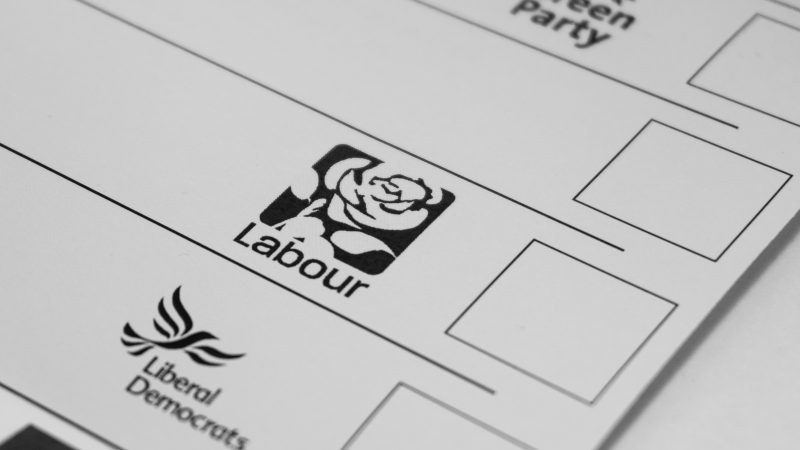
Election day is a contradiction for campaigners. It’s both the ‘this-is-it’ feeling of crunch time and the day the frenzy of the campaign abates, leaving behind a limbo-like sense of anticipation. Five years on from the 2017 election, I remember it well.
On Thursday June 8th, I was in Brighton where activists wearing red, green and orange badges and ‘progressive alliance’ shirts were stopping passersby to tell the story of cooperation: how they usually voted Labour but this time were voting Green. As I travelled back to London, I was tasked with explaining progressive alliance to intrigued strangers: “We’re backing the best-placed progressive in every seat, to elect a progressive government that will bring in proportional representation… so that we don’t have to do this anymore!”
And then the dam broke. In scenes memorable to many a progressive voter, as the 10pm bell chimed and David Dimbleby opened his envelope, the feeling of doom was replaced with an unfamiliar one: relief, even tentative elation. The Tories, presumed unstoppable, were set to dramatically lose their majority.
On reflection, it was clear that multiple factors had conspired to upend expectations. Brexit was wreaking havoc across Tory heartlands, as many stayed home or voted Lib Dem in protest. Labour had played to its campaigning strengths, leveraging Jeremy Corbyn’s abilities to draw crowds. The Conservatives under Theresa May – not a born campaigner, debater or party leader – had run a disastrous campaign.
And the level of tactical voting was unprecedented, smashing records across the country, as voters weighed up the electoral arithmetic and voted for the best-placed progressives to topple the Tories. This was the quiet, determined work of activists and volunteers, supported by Compass, to give progressives the opportunity to try something new. Most notable was the sacrifice of the Greens, whose vote share halved, but whose efforts secured at least ten crucial seats for Labour and Lib Dem candidates. As Barry Langford’s brilliant book about 2017 recounts, this was encapsulated in the text I received at 4am from a Green activist in a seat that Labour had just won: “We did it.”
Emboldened by this result, our activists have not let up since, patiently building the architecture of cooperation. Many of them didn’t believe the hype following 2017 and distrusted the lessons Labour took from it: that it would take just one more heave to oust the Tories. 2019 bore out that suspicion, cementing the Tories’ lead and calling an end to the Corbyn era.
So, in 2022, what lessons still hold for those still seeking a progressive win? If progressives are to get serious about winning power, they need to get it together. For the parties this means being smart and strategic, combining a ruthless pragmatism to match the Tories with a pluralism that recognises the wisdom and interdependence of others – not least under the first-past-the-post system.
At Compass, we continue to operate at the national level, where we work with leaders across parties who want to open channels. But, as in 2017, we know that path dependency and tribalism still hold fast. So we start where we have always started: at the grassroots, with activists working with one another despite exhortations and occasional expulsions. We know that going against this grain is tough – but also that the intrigue of something a bit different, such as a door knocker showing up with three different rosettes, can capture people’s imagination and prove politics can be different.
We know this because it mirrors our own story over the past two years: when we invest in local leaders, our membership base blossoms. Our supporters come to us because they hear about progressive alliance victories – from Chesham and Amersham to North Shropshire and local elections wins in Richmond, Worcester and North Yorkshire. They feel the mood music shifting, even if only behind the scenes, with leaders of the major progressive parties not opposed to strategic collaboration.
They hear about our work from commentators like Andrew Rawnsley and Paul Mason, and see the progressive alliance enabled through landmark votes, such as 83% of Labour members supporting proportional representation in 2021. Perhaps most hopeful of all, they look across the world and see progressives trying something new and winning power: from Joe Biden’s pacts with Bernie Sanders in 2020 to New Zealand’s Jacinda Ardern lauding the benefits of multiple-party government; from Finland’s female-led coalition to the SPD in Germany coming from behind to lead the first national three-party government. The future is arriving from as far away as Australia and from closer to home, with coalitions in Scotland and Wales. This is the age of alliances.
So, we continue to make the argument – showing how multi-party governance might work or reporting on progressive co-operation at the locals. We run campaigns like Only Stand to Win, working with Labour members to demand that local parties decide whether to stand a candidate. And we invest in our base, from only 15 groups last year to over 26 active groups today, with 12 more in the process of forming. As in 2017, we’re working against big party machines, entrenched cultures and rigid rules. But we’re committed to our theory of change: that starting with a small number of people, working persistently with principle and pragmatism, can make big waves. With that energy powering us, we’re ready to convert the 2017 win that wasn’t into that progressive majority that already exists but has been divided and therefore conquered. But no more.




More from LabourList
Ashley Dalton resigns as health minister for cancer treatment
Paul Nowak column: ‘Labour must focus on the basics’
‘Labour’s two-child cap victory rings hollow while asylum-seeking children remain in poverty’